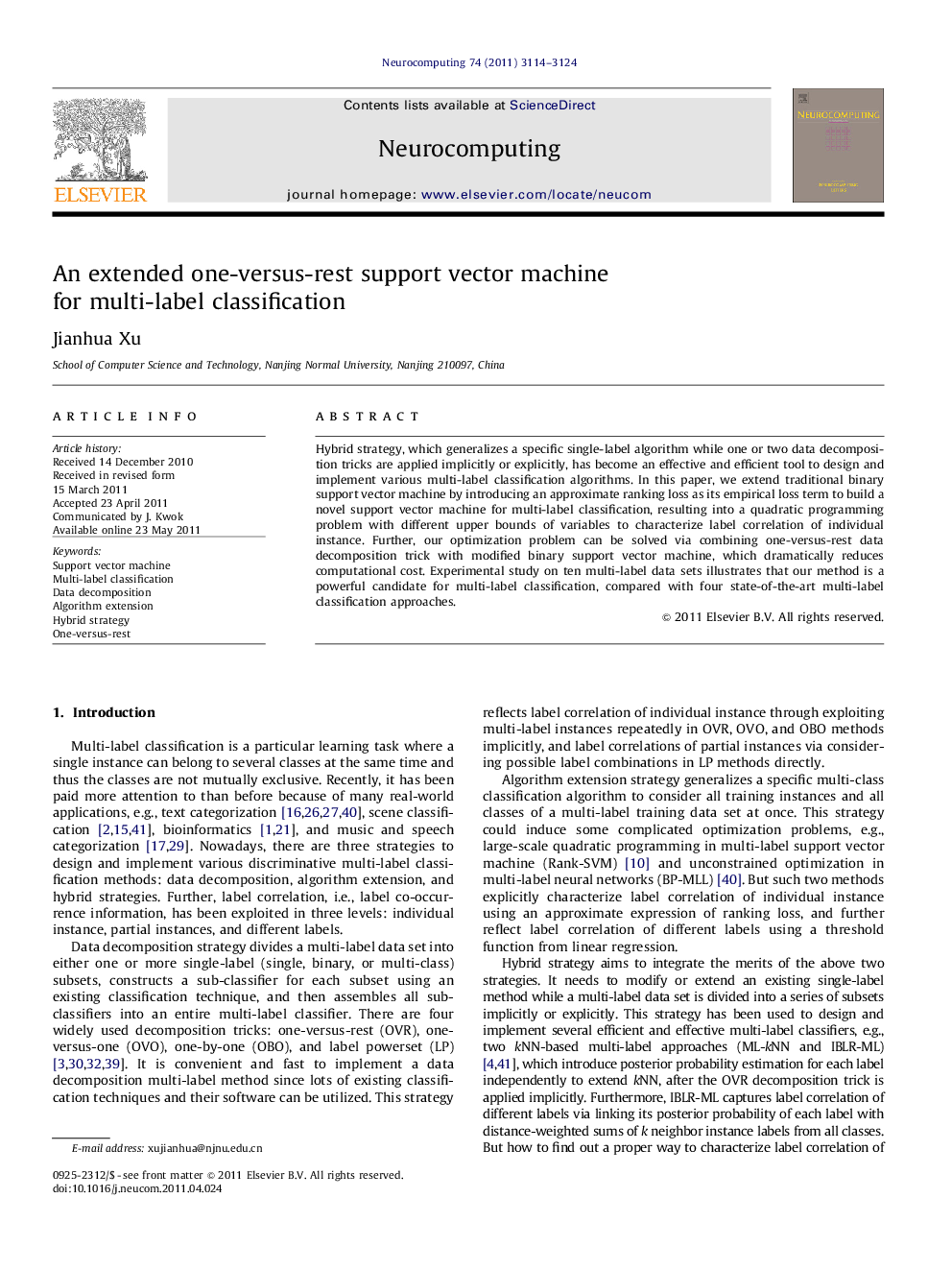| Article ID | Journal | Published Year | Pages | File Type |
|---|---|---|---|---|
| 408029 | Neurocomputing | 2011 | 11 Pages |
Hybrid strategy, which generalizes a specific single-label algorithm while one or two data decomposition tricks are applied implicitly or explicitly, has become an effective and efficient tool to design and implement various multi-label classification algorithms. In this paper, we extend traditional binary support vector machine by introducing an approximate ranking loss as its empirical loss term to build a novel support vector machine for multi-label classification, resulting into a quadratic programming problem with different upper bounds of variables to characterize label correlation of individual instance. Further, our optimization problem can be solved via combining one-versus-rest data decomposition trick with modified binary support vector machine, which dramatically reduces computational cost. Experimental study on ten multi-label data sets illustrates that our method is a powerful candidate for multi-label classification, compared with four state-of-the-art multi-label classification approaches.
Research highlights► We propose a novel one-versus-rest multi-label support vector machine. ► Label correlation is characterized explicitly via upper bounds of variables. ► Our method works well on ten data sets according to five indicative measures. ► Our method is a powerful candidate for multi-label classification.
